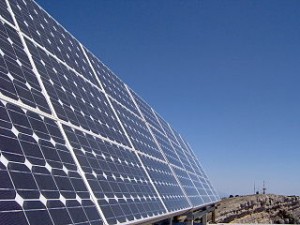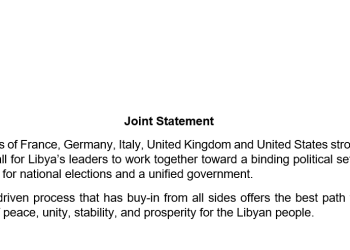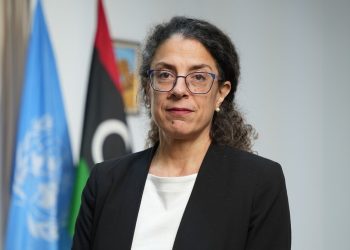By John Hamilton.

London, 17 April 2013:
The recent renewable energies’ workshop held by UK Trade & Industry in Tripoli was an opportunity . . .[restrict]to understand Libya’s plans for increasing the quantity of electricity generated using new technologies by 2020. The workshop explored the areas where the UK government and British businesses could contribute to helping Libya increase the share of power from renewables to 6% by 2015 and 20% by 2020. It also involved a discussion on the introduction of anaerobic digestion technology.
While eager to advance specific projects in the short term – tenders for two solar projects are expected shortly – Libya’s chief challenge in getting renewable projects off the ground lies in mustering the political will to overcome its historic reliance on hydrocarbons and to establish workable laws and regulations. Speaking at the workshop, Renewable Energy Authority of Libya (Reaol) chairman Khairy Qassim Agha said that Libya had to “be in line with our neighbours and to work with the European Union. We have a very big vision. Libya is now a major oil exporter and we want to be a clean energy exporter 20 years from now.”
General National Congress energy committee member Abdelkarim Al-Jiash said the committee was “ready to support such activities by issuing the required laws and regulations”. However, the Libyan experts and engineers responsible for getting renewables projects off the ground face a host of bureaucratic, financial and also cultural hurdles. According to one specialist from Gecol, “there is a gap between the technical people and the decision-makers. We need an effort to let people know what is expected of renewable energy, and why we should spend all this money on it.”
With many other challenges in front of it, it may take some time for the GNC to put in place the necessary legislation. The Ministry of Electricity is currently drafting a new electricity law and renewable energy legislation is also under consideration. Additionally Reaol is drafting a national energy efficiency action plan which will be opened for public discussion in the coming months.
UKTI expert Aidan Kinsella, who is a director of anaerobic digestion specialists Greeneos led a discussion of how this technology could be implemented. While capable of resolving the country’s sewage and waste problem while also generating clean electricity, the logistical difficulties are immense – both the need to fix the sewage system itself, and the requirement to separate organic matter out of regular household waste.
The right laws are necessary to make it possible for privately-financed power projects – whether conventional or renewable – to supply electricity into the grid and to get paid for it. Reform of subsidies is also necessary before this can happen. This is also being discussed.
As one contributor to the workshop pointed out there is a proposal to start phasing out subsidies from August 2014. With heavily-subsidised power currently being sold to end users at the equivalent of one Euro cent/kWh, there is almost no incentive for consumers to adopt distributed technologies such as domestic photovoltaic or solar heating and cooling. Meanwhile, the government’s historic treatment of hydrocarbons as an almost free resource means it is reluctant to take on the high up-front capital costs of most renewables projects. Even basic energy efficiency savings are currently hard to achieve.
According to a recent assessment by GECOL, if every household in Libya was given the money to pay a fully commercial electricity bill, the government would have to pay about LD 4000 per year to every family of five. Shifting to such a system of allowing a market price for power would inevitably encourage individuals to reduce consumption or to consider more effective methods such as roof-based photovoltaic or solar heating and cooling systems.
Libya’s current renewable energy capacity is limited to a programme of relatively small photovoltaic projects totalling 4MW out of a total installed capacity for all types of generation of about 6,600MW. Reaol is also installing solar cooling plants on all government buildings which will substantially reduce the cost of air-conditioning during summer months. This latter project is the only one to have been signed off since the end of the Qaddafi regime. It was approved rapidly by the interim government of Dr Abder Rahman El-Kib. The next major renewable project to be built is the 60MW Derna wind farm. Three other wind farms are planned; a 120-MW plant at Al-Muqrun and 50MW plants at Emsalata and Tarhouna. Reaol has carried out feasibility studies for a 100MW concentrated solar power plant at Sebha, a 50MW CSP plant in Ghadames, and a 15MW photovoltaic plant in Shahat.
John Hamilton is a contributing editor at African Energy (www.africa-energy.com, and a director of Cross-border Information www.crossborderinformation.com). He was also chairman of UKTI’s renewables workshop.
[/restrict]











